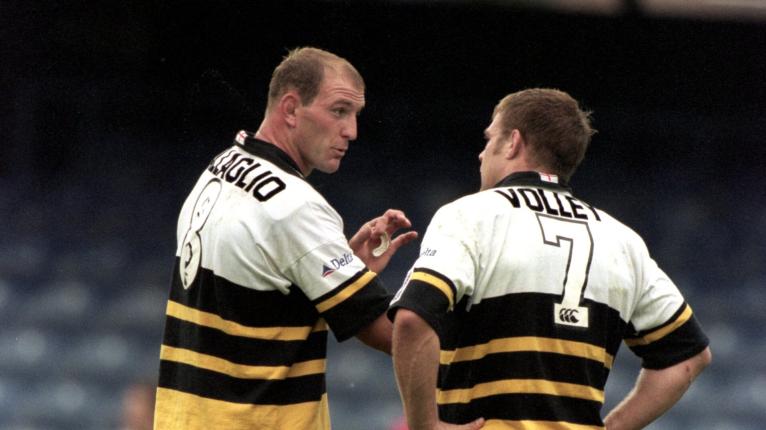
Even after facing a massive financial setback in 2022, with debts exceeding £100 million, the presence of Wasps still lingers. Now, a recent post on the club’s social media platforms teases a potential revival, inviting readers to click for “the latest on our recovery.” However, this initial message, the first since late 2022 under new ownership and management, lacks substantial updates. It appears to be more of a probing attempt to gauge the level of public interest in the brand than delivering concrete information.
While Wasps refrains from seeking financial contributions, their call for “pledges” from interested parties serves a dual purpose: building a marketing database and estimating support for their bid to join the RFU’s proposed Premiership Two. However, their assertion of having “core sustainable finance and a stadium” without tangible evidence has sparked mixed reactions, reflecting lingering skepticism due to the club’s recent financial troubles.
On social media, alongside steadfast fans supporting the former European champions, there’s a significant contingent of skeptics and disgruntled individuals expressing anger over the club’s hefty debt write-off. This sentiment is amplified by existing antipathy towards the RFU among players, administrators, and supporters of lower-tier rugby clubs.
The statement from Wasps hinting at readiness to join a high-level competition further fuels these sentiments. It’s evident to many that they likely have a guaranteed spot in the proposed Premiership Two, effectively shutting out other hopeful clubs while suggesting preferential treatment for those already established in the rugby hierarchy.

In stark contrast to the fate of former rugby powerhouses like Richmond, Orrell, West Hartlepool, Rugby Lions, and London Welsh, who were relegated to the bottom rung of English rugby after financial collapse, it appears Wasps might be getting preferential treatment. While Championship clubs are reluctantly inching towards Premiership Two, facing financial hardships and uncertain futures, Wasps seem to be exempt from starting afresh. This exacerbates the anguish among struggling clubs, whose central funding remains drastically reduced post-COVID, with initial Premiership Two financial offers reportedly falling short.
The indignity of applying for a league they already participate in, coupled with doubts about the return of merit-based promotion and relegation, fuels frustration. Wasps’ call for future league administrators to “share our values” rings hollow to many, considering the club’s recent financial tumult and its impact on stakeholders. Investigations reveal the staggering losses suffered by bondholders, local businesses, and former owner Derek Richardson, highlighting the magnitude of the fallout.
Despite RFU regulations mandating the repayment of rugby-related debts by reborn Phoenix clubs, the absence of clear guidelines leaves significant outstanding liabilities unaddressed, suggesting that Wasps’ restructuring may have left debts exceeding £90 million in the rearview mirror.
Without delving too deeply into the intricacies of English corporate law, the use of ‘pre-pack administration’ in this scenario allows administrators to sell the assets of a collapsed firm as a viable entity, aiming to settle outstanding debts and prevent layoffs. However, in the case of Wasps, this pre-pack administration hasn’t significantly salvaged jobs or alleviated debt burdens.
For Wasps to advocate for values in line with Premiership Two raises doubts among other clubs. Is this the standard they aspire to? Critics argue that Wasps, despite being technically a new entity, still carries the legacy of past mismanagement, particularly with Chris Holland, a former key figure, now at the helm.
The presence of Lawrence Dallaglio, a Wasps legend, in promotional materials adds another layer of complexity. While his association with the club’s glorious past is celebrated, his role as a non-executive director during its downfall raises eyebrows.
As Wasps hint at building a new stadium in Kent, questions about funding and potential public investment arise. Meanwhile, rival rugby clubs in Worcester, Barnet, Oxford, Solihull, Henley-in-Arden, and elsewhere must grapple with the sudden emergence of a competitor laden with baggage. This leaves the rugby community with more questions than answers.
The RFU’s apparent departure from their previous handling of failed clubs by fast-tracking Wasps into a newly-established Premiership Two raises critical questions. Will they extend this leniency to other struggling clubs like Worcester, the London Irish, or the Jersey Reds? Moreover, why prioritize accommodating a financially troubled entity like Wasps, which has left a wake of debt, over adequately funding Championship or National One clubs that have managed within their means?
Despite legal technicalities, it’s bewildering how any governing body could overlook the staggering debts being swept under the rug. This raises concerns about accountability and fairness within the rugby hierarchy.
Just when it seemed the saga of the Wasps had concluded, the unfolding events suggest otherwise. Like those who invested in their bonds, it appears my assumption of closure was premature, highlighting the complexities and uncertainties within the realm of professional rugby.
Leave a Reply